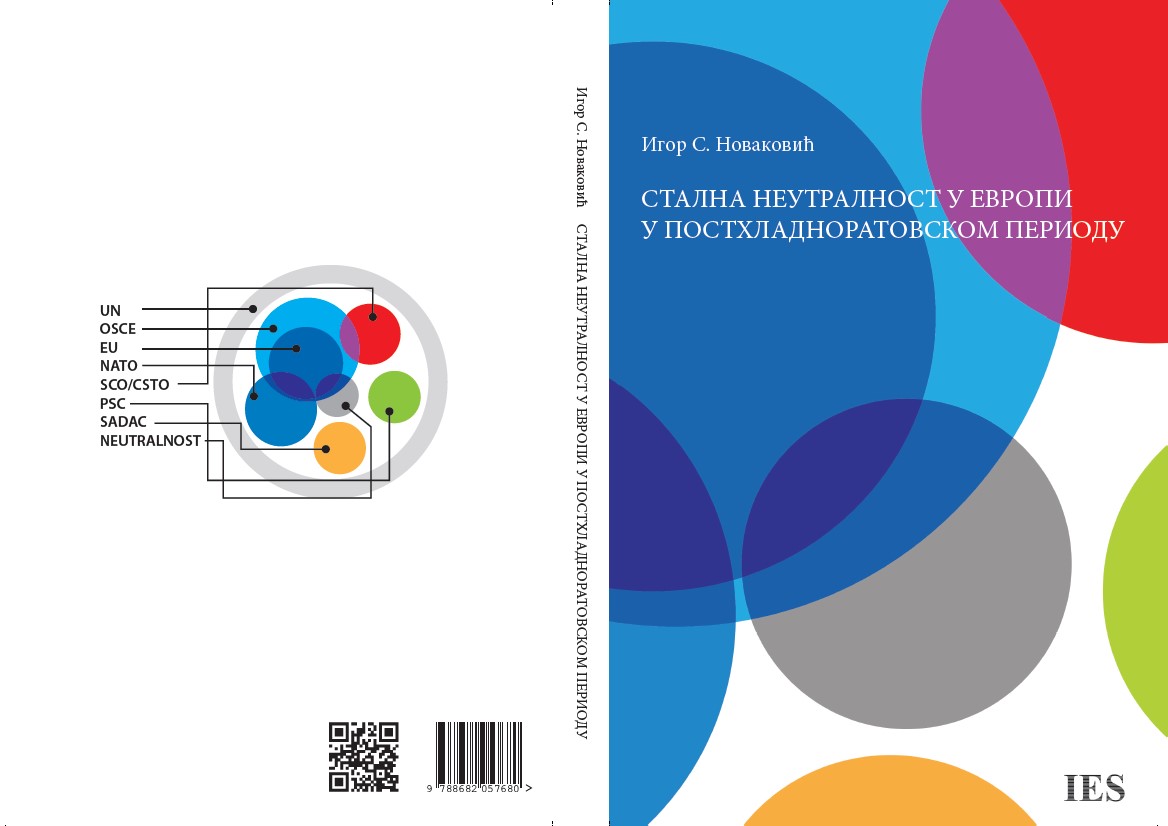From the Introduction:
Since the end of the Cold War the question of neutrality/permanent neutrality as foreign policy and security status of state, a matter “most complex, subtle and complicated in international law”, has been sidelined from the mainstream of debates on international relatiosn and international law. A change of international system, globalization, growing state interdependance, change of security challenges etc. have become more dominant. However, this foreign policy concept is still somewhat important, having in mind that four member states of the European Union (EU): Finland, Sweden, Austria and Ireland, and one West-European state outside of the EU, Switzerland, are still, in a way, considered permanently neutral countries. Also, we should have in mind the influence of this concept onto the EU reform process and the speed of treaty ratification process, most of all the Treaty of Nice and Treaty of Lisbon. Furthermore, the permanent neutrality still represents a possible foreign policy alternative to European states that have still not joined the EU. In that sense, one important example is that of Serbia, an EU membership candidate state that has declared “military neutrality towards existing military alliances”.

